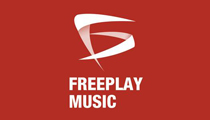This website uses cookies so that we can provide you with the best user experience possible. Cookie information is stored in your browser and performs functions such as recognising you when you return to our website and helping our team to understand which sections of the website you find most interesting and useful.
Business News Digital Labels & Publishers Top Stories
Library music firm accuses MCNs of abusing its user-generated content service
By Chris Cooke | Published on Thursday 19 February 2015
A US-based library music company, which was one of the first to capitalise on the rise of bedroom filmmakers seeking music to sync to their videos, has filed litigation against four ‘multi-channel networks’. Freeplay accuses the YouTube-channel-operating firms of abusing licences designed for user-generated videos to circumvent having to pay for the music used in their commercial content.
The companies being sued include some of the big guns in the burgeoning MCN sector: Disney’s Maker Studios, DreamWorks Animation’s Awesomeness, Big Frame and BroadbandTV Corp. Two more – Machinima and Collective Digital Studio – which got in first with litigation against Freeplay last week, are set to receive countersuits from the music rights owner in due course.
Operating in the library music business since 2001, Freeplay Music entered into an agreement with YouTube in 2013 and began offering a service specifically aimed at the makers of user-generated content on the video platform.
Amateur video makers are offered a licence that allows them to use music from the Freeplay library free of charge, on the condition Freeplay is able to subsequently monetise that content on YouTube using Google’s Content-ID system. In copyright terms, it means that the ‘sync’ bit of the deal is free, because Freeplay can earn from the ‘public performance’ element of the copyright whenever a video is streamed.
But, argues Freeplay, that licence has clearly outlined limitations, and is not designed for commercial content producers, who can buy a $250 a year licence. And, crucially, it does not apply to videos posted on MCN-managed rather than personal YouTube channels, not least because advertising on those channels isn’t controlled by Google or linked to Content-ID.
Freeplay says that by using an audio fingerprint technology called TuneSat it has found music from its libraries being used on numerous MCN-operated channels without the right licence. Insisting that litigation is no one’s preferred option, Freeplay CEO Scott Schreer told CMU that the company had been trying to rectify this situation with the targeted MCNs for over a year, but without resolution.
For their part, Machinima and Collective Digital Studio, in their pre-emptive litigation, basically accuse Freeplay of deliberately confusing online video makers so that they sync music from the company’s libraries thinking they can do so for free, only to be subsequently invoiced, or threatened with action, when it that transpires usage is classified as commercial. The MCNs go as far as to label Freeplay’s approach as ‘copyright trolling’.
But Schreer resolutely rejects those allegations, insisting the terms of his company’s licences are clearly explained with the non-specialist user in mind. For Freeplay, this is about MCNs with massive valuations trying to get the benefits of the bedroom video-maker, while concurrently boasting about turning those amateur productions into profit-making commercial enterprises.
With the low-cost small-time-user sync market in growth, and MCNs continuing to grab the headlines, these could prove to be interesting cases with wider ramifications.






